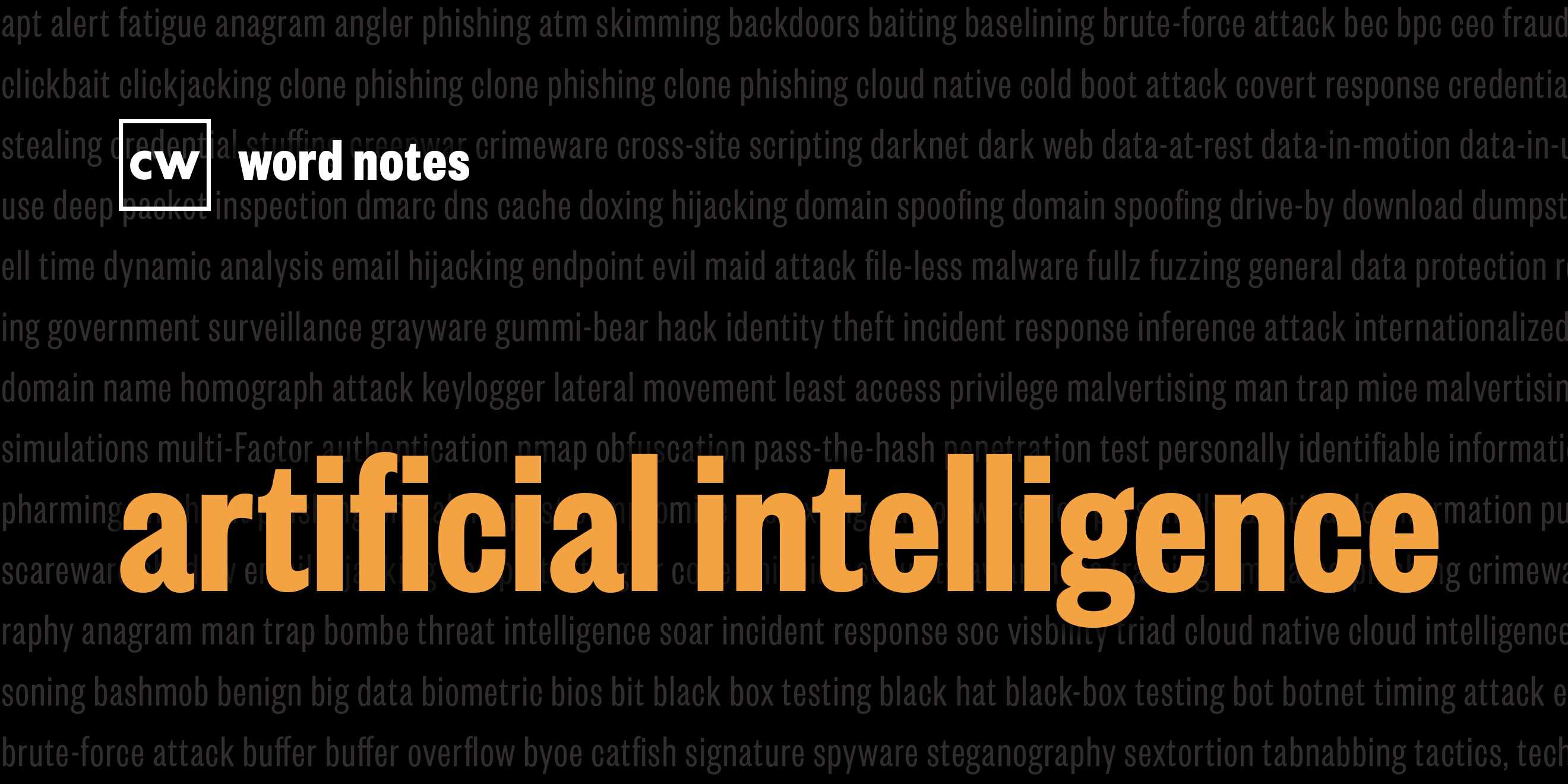
Artificial Intelligence (AI) (noun)
Rick Howard: The word is: AI
Rick Howard: Spelled: A for artificial and I for intelligence.
Rick Howard: Definition: The ability of computers to execute tasks typically associated with human intelligence, including natural language processing, problem solving, and pattern recognition.
Rick Howard: Example sentence: Chat GPT uses AI techniques to answer text questions like a human would.
Rick Howard: Origin and context: In 1950, British mathematician Alan Turing introduced what's now known as the "Turing Test" in his paper “Computing Machinery and Intelligence.” The test is a measure of a machine's ability to manifest intelligent behavior indistinguishable from that of a human. Variations of the Turing Test are still in use today. In 1956, Dartmouth held a conference organized by legendary John McCarthy during which several scientists, including Marvin Minsky, Nathaniel Rochester, and Claude Shannon established artificial intelligence as a field of research. AI continued to improve as computers grew more powerful and in 1997, IBM's deep blue super computer defeated world chess champion, Garry Kasparov.
Rick Howard: In 2012, Google’s Deepmind AI program AlphaGo, trained on an artificial neural network managed to beat professional Go player Lee Sedol in four out of five games. More recently, open AI's families of large language models, LLMs, have demonstrated significant advances in language generation capabilities. In late 2022, open AI released its Chat GPT platform to the public, which gained widespread mainstream attention. Analytical steps describes the six major branches of artificial intelligence, machine learning, neural networks, robotics, expert systems, fuzzy logic, and natural language processing. In the cybersecurity industry, AI is frequently used for threat detection. Machine learning algorithms are useful for detecting new variants of malware, but they still struggle with identifying broader attack campaigns.
Rick Howard: Nerd reference: In the movie Imitation Game starring Benedict Cumberbatch as the indomitable Alan Turing, the man responsible for number one, proving mathematically in 1937 that a computer could actually be built his paper on computing numbers with an application to the entscheidungs problem is now regarded as the theoretical foundation of modern computing. Number two, he significantly contributed to the allied efforts in World War II in breaking the German enigma coating machine between 1939 and 1942. And number three, he defined one of the first tests for artificial intelligence, the Imitation Game in 1950. In this scene from the 2014 movie, Turing describes the imitation game test.
Rory Kinnear: Could machines ever think as human beings do?
Benedict Cumberbatch: Most people say no.
Rory Kinnear: You are not most people.
Benedict Cumberbatch: Now the problem is you are asking a stupid question.
Rory Kinnear: I am.
Benedict Cumberbatch: Of course, machines can't think as people do. Machine is different from a person since they think differently.
Benedict Cumberbatch: The interesting question is just because something, uh, thinks differently from you, does that mean it's not thinking? We allow for humans to have such divergences from one another.
Benedict Cumberbatch: You like strawberries? I hate ice skating. You cry at sad films. I am allergic to pollen, what is the point of, of, of, of different tastes, different preferences, if not to say that our brains work differently, that we think differently. And if we could say that about one another, then why can't we say the same thing for brains? Little of copper and wire steel.
Rory Kinnear: And that's this big paper your on, what's it called?
Benedict Cumberbatch: The imitation Game.
Rory Kinnear: Right? That's, that's what it's about.
Benedict Cumberbatch: Would you like to play?
Rory Kinnear: Play?
Benedict Cumberbatch: It's a game, a test of songs, for determining whether something is a machine or a human being.
Rory Kinnear: How do I play?
Benedict Cumberbatch: Well, there's a judge and a subject and the judge asks questions. Depending on the subject's answers, determines who he's talking with, uh, what he's talking with and all you have to do is ask me a question.
Rick Howard: Word Notes is written by Tim Nodar, executive produced by Peter Kilpe, and edited by John Petrik and me, Rick Howard. The mix, sound design, and original music have all been crafted by the ridiculously talented Elliott Peltzman. Thanks for listening.

